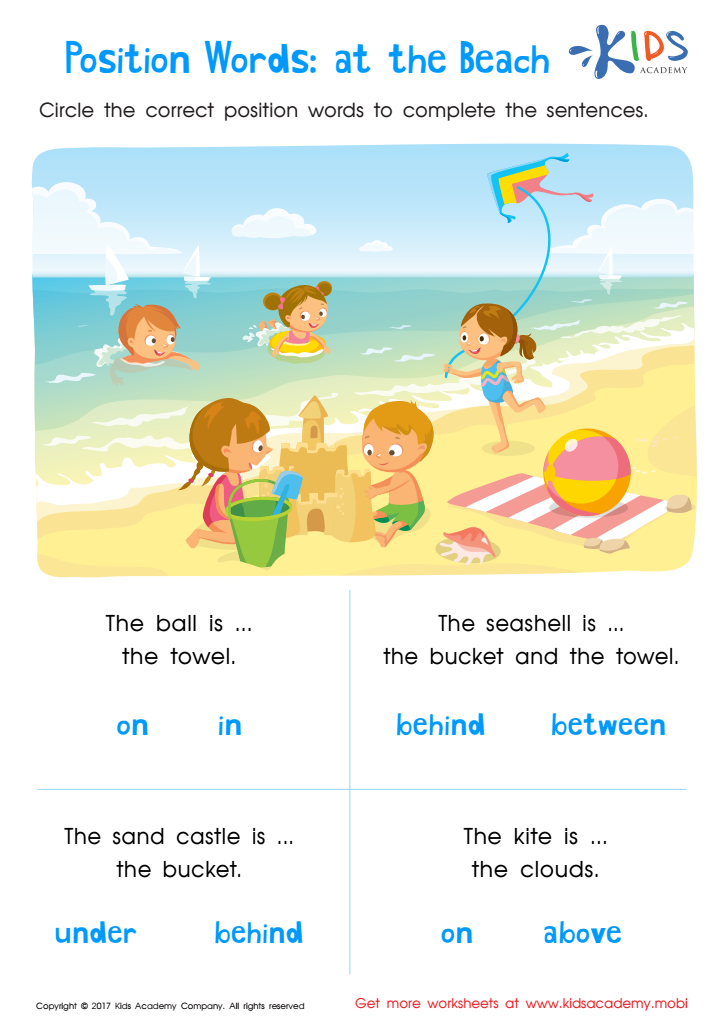Vocabulary Building Extra Challenge Worksheets for Ages 7-8
8 filtered results
-
From - To
Enhance your child's language skills with our Vocabulary Building Extra Challenge Worksheets for ages 7-8. Carefully designed to engage young learners, these worksheets are perfect for advancing vocabulary, reading comprehension, and critical thinking. Each exercise encourages children to explore new words and apply them in context, boosting their confidence in language usage. Ideal for classroom or at-home learning, our fun and interactive worksheets help kids master complex vocabulary in a supportive environment. Equip your child with the tools they need for language success with our expertly crafted extra challenge worksheets.
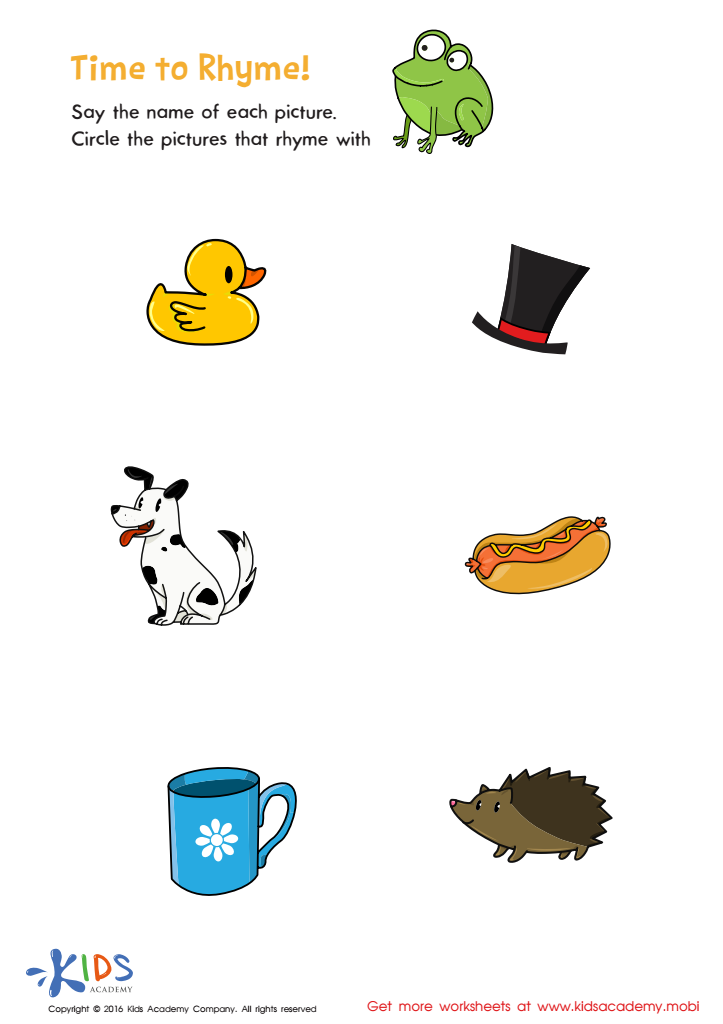

Rhyming Worksheet: Time to Rhyme Rhyming Worksheet
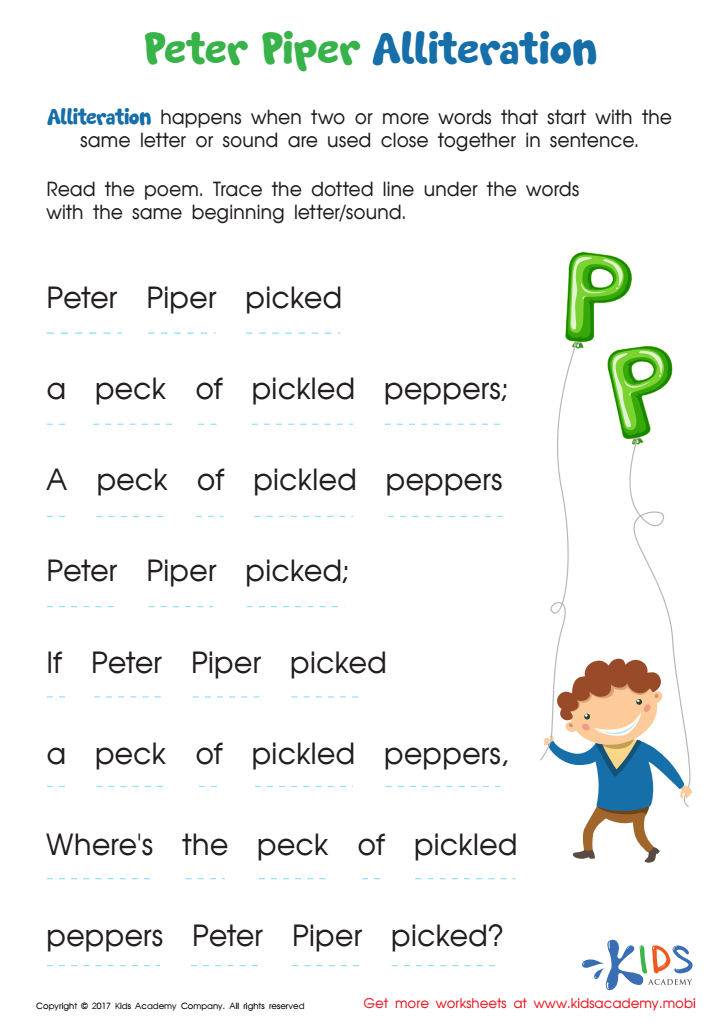

Peter Piper Alliteration Worksheet
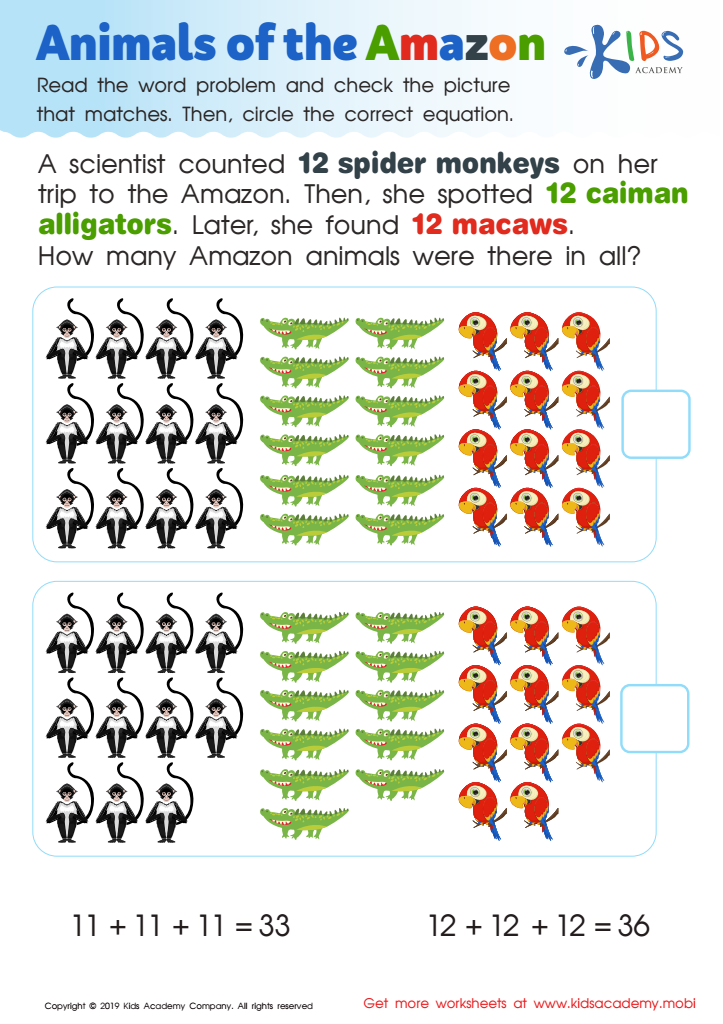

Animals of Amazon Worksheet
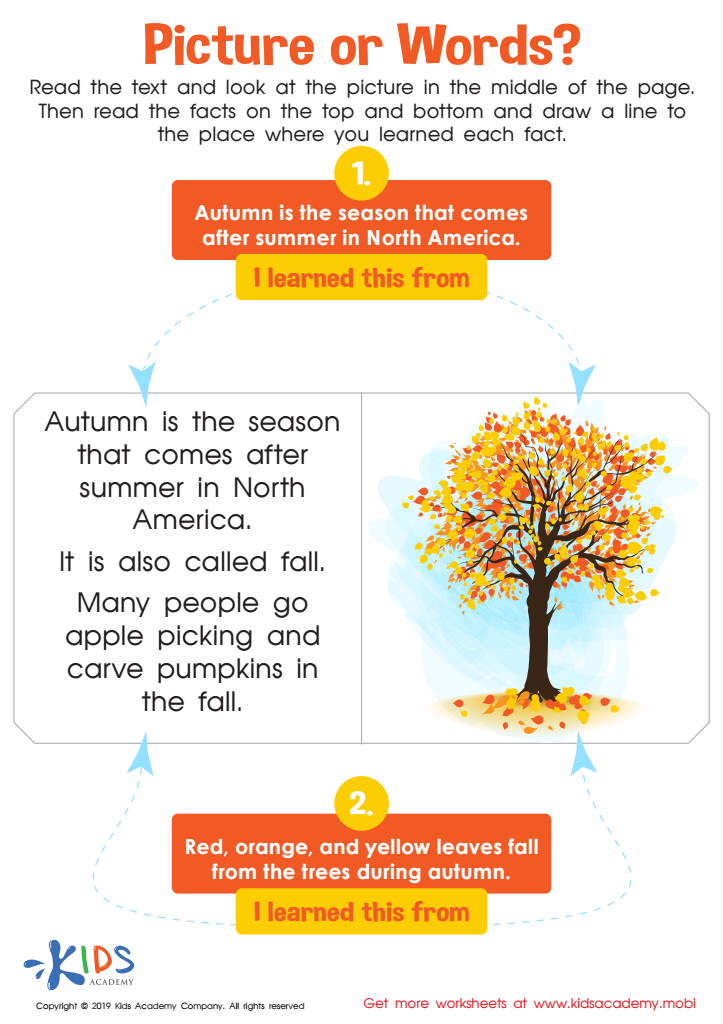

Picture Words Worksheet
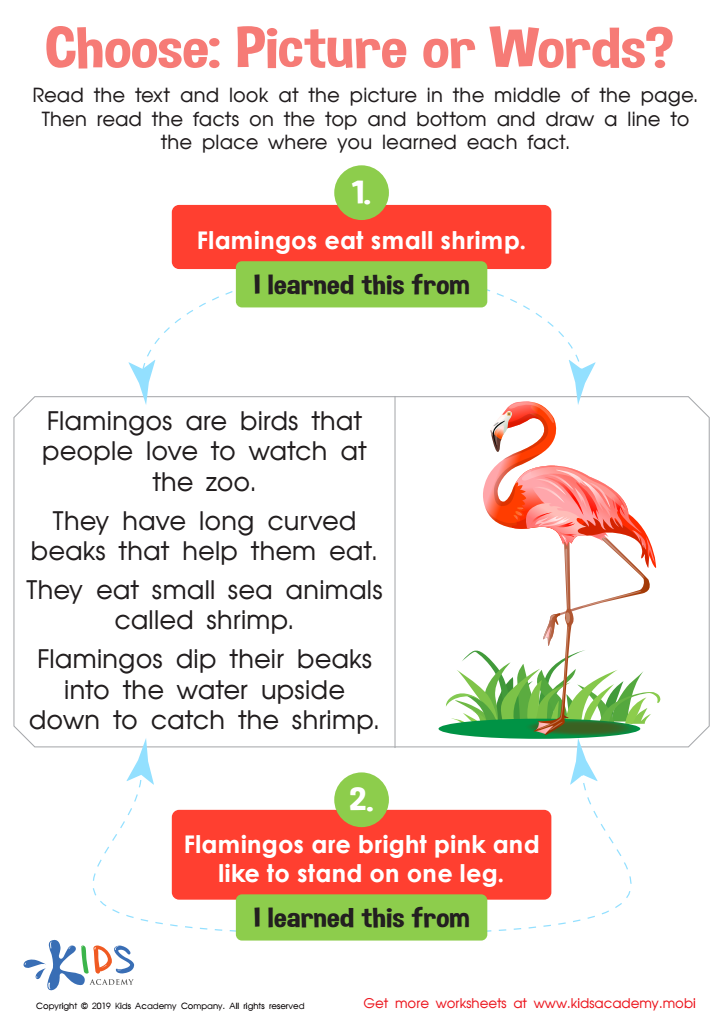

Choose Picture Words Worksheet
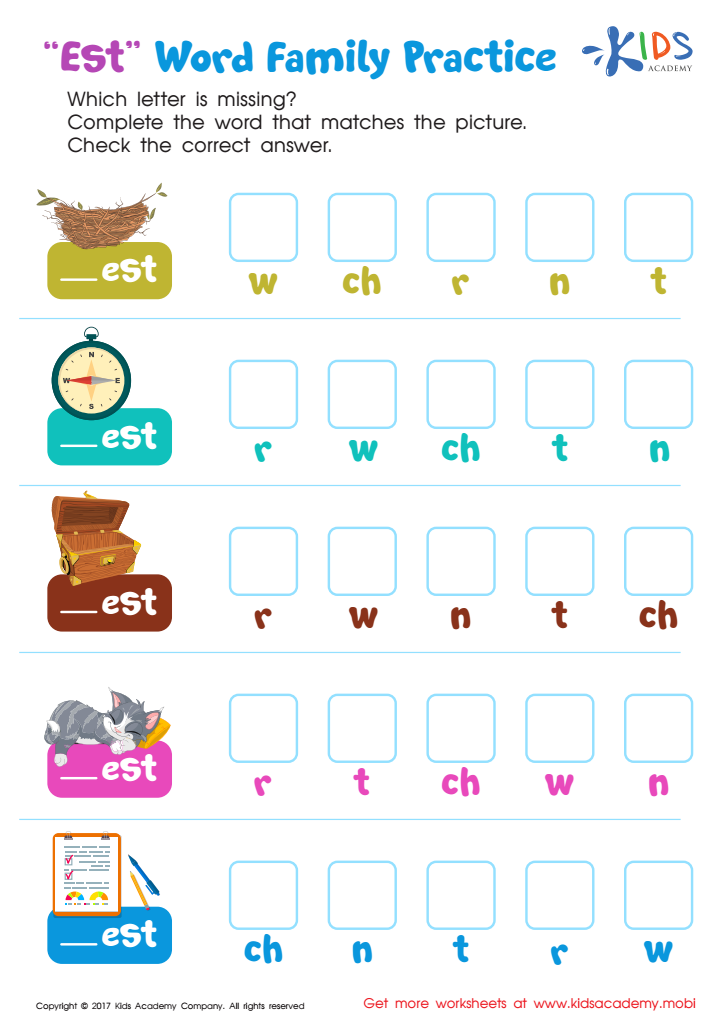

Words Family "est" Spelling Worksheet
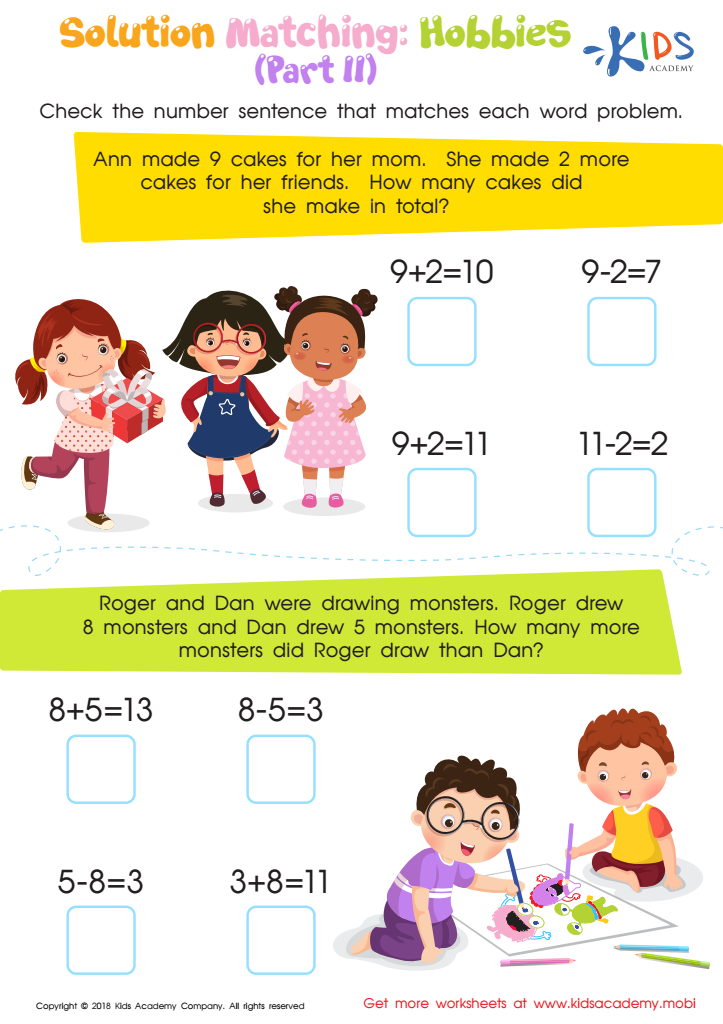

Solution Matching: Hobbies. Part 2 Worksheet
Vocabulary building is crucial for children ages 7-8 because it lays the foundation for reading comprehension, communication skills, and academic success. During these formative years, children experience significant cognitive development and are particularly receptive to learning new words and concepts. A robust vocabulary helps them understand and process what they read, enhancing their ability to make connections between different ideas and fostering critical thinking skills.
For parents and teachers, providing Vocabulary Building Extra Challenges means giving children tools that extend beyond basic word recognition. Engaging with more complex vocabulary not only enriches their language but also boosts their confidence in expressing thoughts and ideas effectively.
Moreover, a strong vocabulary is essential for all subjects, not just language arts. A child adept in language can better grasp math problems, understand scientific terminology, and follow social studies narratives. Activities that target vocabulary expansion can make learning more interactive and enjoyable, turning potentially challenging material into fun opportunities for growth.
By prioritizing vocabulary development at this stage, parents and teachers set up children for long-term educational benefits. They equip them with the skills needed to navigate an increasingly information-driven world, making them more articulate, perceptive, and prepared for future academic endeavors.
 Assign to My Students
Assign to My Students
